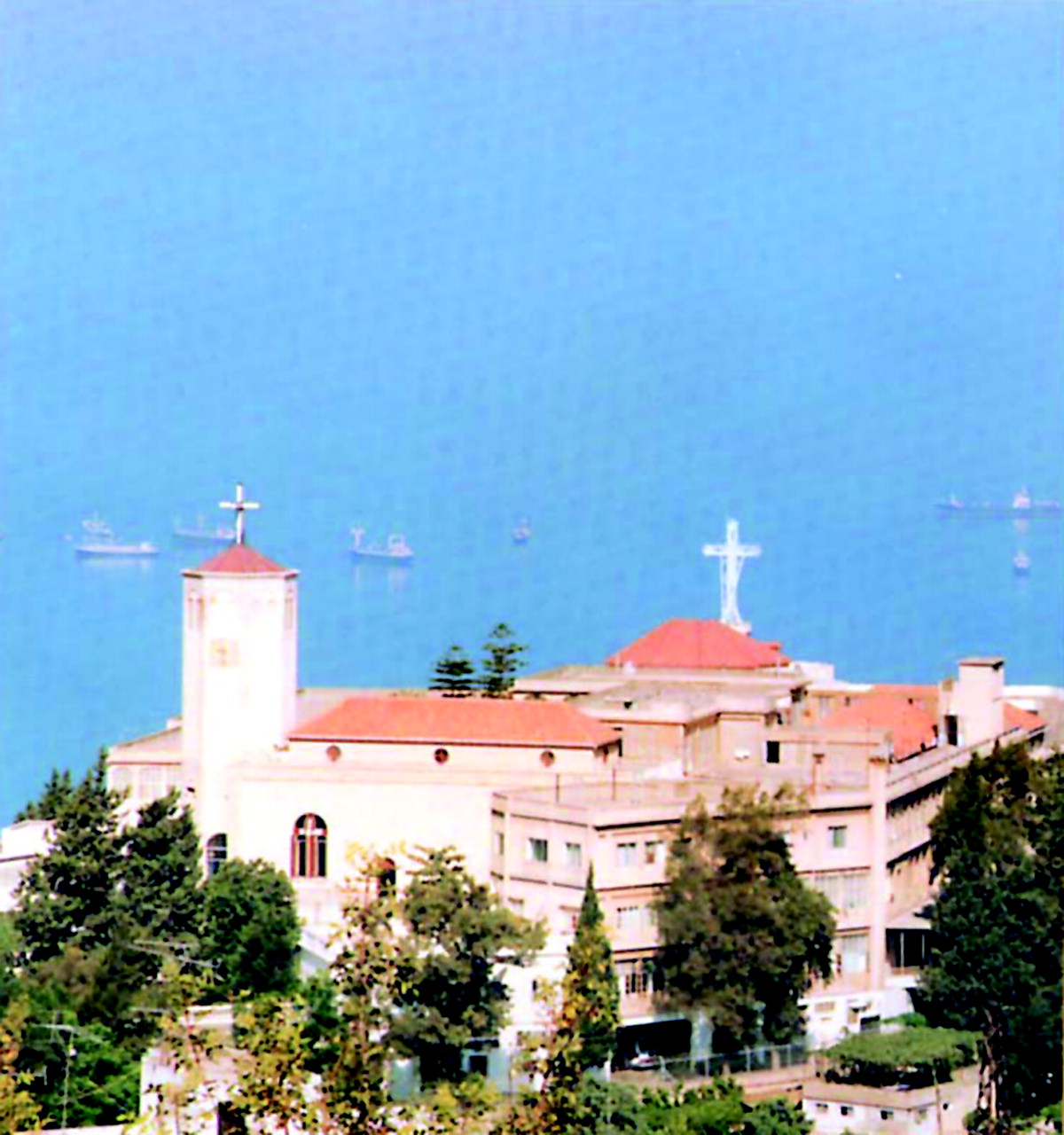As the war in Lebanon (1975 to 1990) raged around them, the patients at the
Psychiatric Hospital of the Cross, the Middle East’s oldest psychiatric institution, felt relatively safe. Coming from all sides of the conflict, and from 10 neighboring countries, they knew that no party would target their treatment facility for fear of putting at risk some of its own. That explains, in part, how the hospital survived one of the bloodiest of recent wars and was even able to expand to address the growing needs of a stressed population.
What became the leading purveyor of psychiatric care in the Arab world started as a vision by a Capuchin monk named Jacob Haddad (1875–1954) of raising a large cross on a hilltop overlooking the Mediterranean
(1). In 1919, the monk’s quest led him to a beautifully situated property 4 km east of Beirut, known to the wary locals as the “possessed mount.” Initially, the cross would rise over a modest convent whose earliest functions were to care for disabled veterans of World War I and to serve as a respite home for aging Catholic priests
(1). However, another area of glaring need was soon identified: professional care for the community’s “possessed.” Thus, in 1937, the convent, renamed the Psychiatric Hospital of the Cross, opened its doors to the mentally ill. The scientific approach quickly reinforced the humanitarian impulse: by 1946, electroconvulsive therapy was being routinely administered; by 1952, neuroleptics were effecting the first remissions
(2).
A parallel set of institutions (15 schools, two medical clinics, two hospice centers) helped win over mainstream support for what became Father Haddad’s lifetime struggle: furthering the rights of the mentally ill in the region. From its humble beginnings, the hospital was thus able to grow to its present 1,000-bed capacity, with patients divided among five specialized wards. As mentioned, the war proved to be a period of ironic prosperity: the largest ward was added in 1978, and new education and research agreements were signed with the Université Sainte Anne and the Université René Descartes, two major French teaching hospitals
(2). Attending, resident, and psychology staff are provided through the Université Saint Joseph de Beyrouth. Full-time internists, neurologists, and social workers help complete the care.
The vision of raising a cross on a hill overlooking the Mediterranean became a symbol of cooperation, survival, and sanity in an insane war. The spiritual core of the mission and its impact on a large disenfranchised segment of Arab society were recognized by the Vatican with the beatification, in 1992, of Father Haddad—a first step toward sainthood in the Catholic tradition
(2). Long before that, however, countless patients had expressed their gratitude in the form of carved words of thanks that can be read on the bark of the campus’s pines, as well as on the cross itself.


